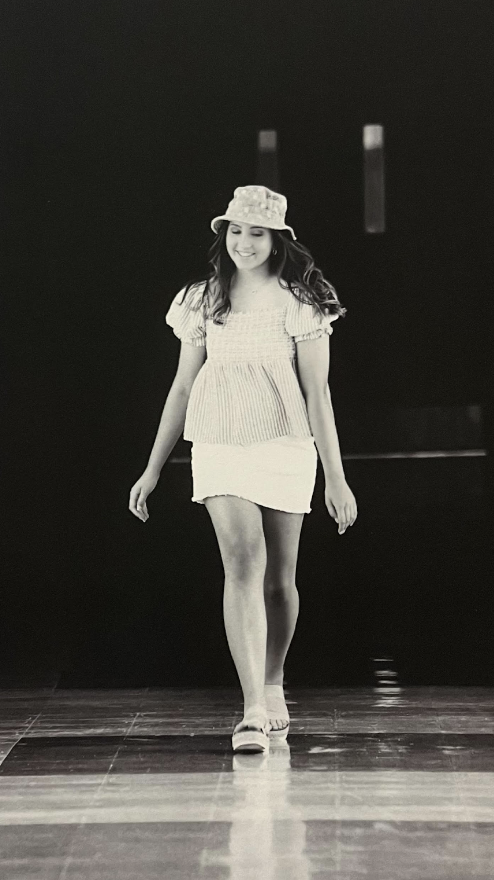
Depiction and Quote from “Lady Lazarus” by Sylvia Plath
By Megan Melone, Writer
Photography via Pinterest and Wikipedia
Literature is still very male-dominated, with women authors and women’s writings often being overlooked for more established and revered male authors and male-written works. To celebrate Women’s History Month and bring more awareness to women writers, I compiled a list of classic feminist works. There are numerous impactful women writers and works to read, and I encourage you to expand your literary circle. The works below are a good starting point for the reader who wants to delve into feminist writings.
Their Eyes Were Watching God by Zora Neale Hurston

Zora Neale Hurston was born in Alabama but grew up in Eatonville, Florida. Her writing celebrated African American southern culture, and she was influential in the Harlem Renaissance. Her novel Their Eyes Were Watching God, published in 1937, follows Janie Crawford from her youth to middle adulthood. The novel takes the reader through Janie’s relationships, marriages, and experiences as she survives in a world where she, as a woman of color, has few opportunities and little freedom or control over her life.
A Room of One’s Own by Virginia Woolf
This essay by Virginia Woolf is a well-known feminist work. The essay discusses the suppression of women’s creativity and a woman’s need for a space in which she can freely create and think. The essay tackles the patriarchy’s habit at the time of strangling and suffocating women’s creativity, never giving women the chance to advance or develop a career. Woolf is well-known as both a novelist and a feminist writer.

“The Yellow Wallpaper” by Charlotte Perkins Gilman
This work may be the most frightening selection on this list. “The Yellow Wallpaper” is a first-person account of an unnamed female character who just had a baby. The woman appears to be suffering from postpartum depression, and her male doctor places her under an isolated bed rest that only worsens the woman’s condition. The story is short but not easy to forget. It was written by Charlotte Perkins Gilman and was first published in 1892. Gilman was a leader in the feminist movement and was a founder of the Women’s Peace Party.

“Lady Lazarus” by Sylvia PlathSylvia Plath was a poet and author whose writing was complex and macabre. She challenged the popular view and stereotypes of women in the mid-20th century, stripping away the happy housewife image. One of Plath’s poems, “Lady Lazarus,” is widely believed to be about suicide, though parts of the poem can be cryptic with the narrator never actually mentioning suicide but simply referring to an unnamed act.

Sappho of Lesbos
The inspiration behind the word “lesbian,” Sappho of Lesbos was a lyric poet born around 630 BCE in Greece. Sappho was extremely popular with the ancient Greeks, but little remains of her work. It is believed that she had a female lover, which is mentioned in what remains of her poems. Surviving fragments of Sappho’s works include “The Moon is Down,” “A Lament for Adonis,” and “A Hymn to Venus.” Sappho has inspired lyric poets since the discovery of her works.

The Color Purple by Alice Walker
The novel The Color Purple follows Celie, a young African American woman, through her letters to God and her sister that recount her life and relationships. Celie’s strength and development are empowering as she challenges the obstacles posed to her as both an African American and a woman in the early to mid-nineteenth century. The author, Alice Walker, won a Pulitzer Prize for her novel. Many of her writings center around African American women’s experiences living in the mid-nineteenth century. The Color Purple and Walker’s other works have been influential in both the civil rights and women’s rights movements.

References:
The Editors of Encyclopedia Britannica. “Alice Walker | Biography, Books, & Facts.” Encyclopædia Britannica, 5 Feb. 2019, www.britannica.com/biography/Alice-Walker.
The Editors of Encyclopedia Britannica. “Charlotte Perkins Gilman.” Encyclopædia Britannica, 13 Aug. 2018, www.britannica.com/biography/Charlotte-Perkins-Gilman.
The Editors of Encyclopaedia Britannica. “Sylvia Plath | Biography, Poems, Books, & Facts.” Encyclopædia Britannica, 7 Feb. 2019, www.britannica.com/biography/Sylvia-Plath.
The Editors of Encyclopaedia Britannica. “Zora Neale Hurston | Biography, Books, & Facts.” Encyclopædia Britannica, 3 Jan. 2019, www.britannica.com/biography/Zora-Neale-Hurston.
Foca, A. “The Color Purple | Summary, Characters, & Facts.” Encyclopædia Britannica, 11 Feb. 2019, www.britannica.com/topic/The-Color-Purple.
History.com Editors. “Women’s History Month.” HISTORY, 21 Aug. 2018, www.history.com/topics/holidays/womens-history-month.
Lacayo, R. “Is Their Eyes Were Watching God One of the All-TIME 100 Best Novels?” Time, 11 Jan. 2010, entertainment.time.com/2005/10/16/all-time-100-novels/slide/their-eyes-were-watching-god-1937-by-zora-neale-hurston/.
Mark, J. “Sappho of Lesbos.” World History Encyclopedia, 10 June 2021, www.worldhistory.org/Sappho_of_Lesbos/.by. “10 of the Best Sappho Poems Everyone Should Read.” Interesting Literature, 16 Feb. 2023, interestingliterature.com/2023/02/best-sappho-poems/#.
The New York Times. “The Dobbs v. Jackson Decision, Annotated.” The New York Times, 24 June 2022, www.nytimes.com/interactive/2022/06/24/us/politics/supreme-court-dobbs-jackson-analysis-roe-wade.html.
Reid, P. “Virginia Woolf – Mrs. Dalloway, to the Lighthouse, a Room of One’s Own and Other Major Works.” Encyclopedia Britannica, www.britannica.com/biography/Virginia-Woolf/Mrs-Dalloway-To-the-Lighthouse-A-Room-of-Ones-Own-and-other-major-works.
“A Room of One’s Own | Essay by Woolf | Britannica.” Encyclopædia Britannica, 2019, www.britannica.com/topic/A-Room-of-Ones-Own.
“Woman’s Peace Party | American Organization | Britannica.” Encyclopædia Britannica, 2020, www.britannica.com/topic/Womans-Peace-Party.
“The Yellow Wallpaper | Short Story by Gilman.” Encyclopedia Britannica, www.britannica.com/topic/The-Yellow-Wallpaper.
